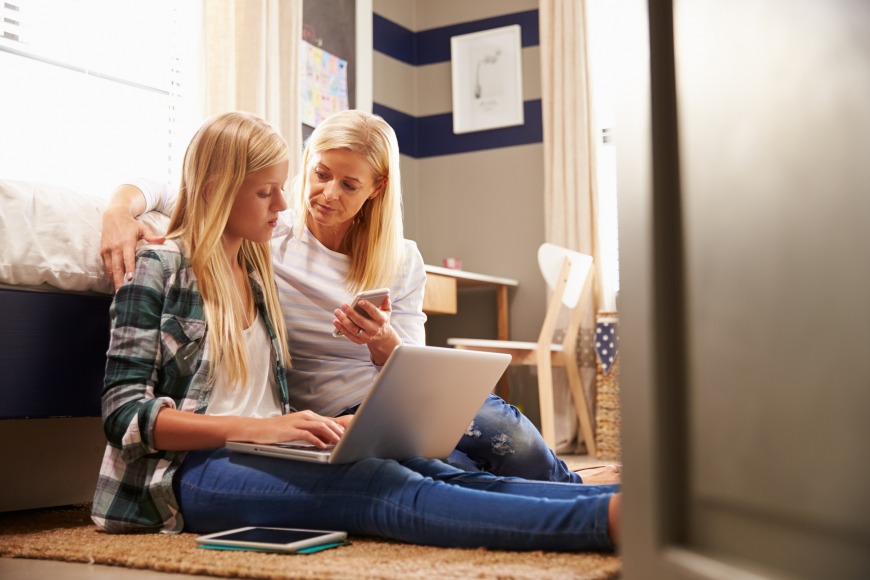Kids are Growing Up With a ‘Warped View of Normal’ – Here’s How to Help Them Process Social Media
From FOMO to gaining ‘likes’ and suffering low self-esteem, children and teens have it tough right now
24 June 2019

All Credits: PA
In a world where being an influencer is a full-time job, stranger-shaming is commonplace and apps exist to make you look skinnier and glossier, it’s no wonder the internet-age is a difficult one to grow up in.
Education secretary Damian Hinds is calling on social media influencers to take more responsibility and says their young audiences aren’t seeing the real picture.
SEE ALSO: 10 Ways to Help Protect Your Child’s Online Reputation
“Children are growing up with a warped view of what is normal because so much of what they see on social media is false,” he says. “I want social media influencers to think about what they are putting on their platform – is it honest? Is it authentic? Is it too image-focused? Use your access to educate young followers rather than focus on body image.”

Meanwhile, a Priory poll of 1,000 parents found that 92% of parents think social media and the internet are having a negative impact on the mental health of young people, with cyber-bullying (50%), lowering self-esteem (41%), anxiety over getting enough likes/followers (40%) and loss of face-to-face interaction (47%), being the main reasons.
So as children with smartphones and access to social media seem to be getting younger, and more time than ever is spent on Instagram or SnapChat, what kinds of things should parents be saying to their super-connected kids?
Each and every person with a social media account is presenting a highlight reel of their lives to the world – and essentially showing off. Even the most famous people, as well as all of your children’s peers, are battling their own difficulties and insecurities.
“Every child has stressful situations to cope with, including pressures about the way they look, which can emanate from social media and its reflection of a ‘perfect world’ adorned by ‘perfect people’,” says child and adolescent psychiatrist Dr Hayley van Zwanenberg, from Priory’s Wellbeing Centre in Oxford. “So remind your child you love them unconditionally.
“Explain that social media offers a filtered world which is often far from the reality.”
Which can lead to even more serious issues
“I have seen a rise in young patients citing use of social media as a major contributing factor to their developing depression, anxiety and eating disorders,” she says. “Young people are increasingly exposed to unhealthy and unrealistic physiques.
“Let your child know they can always contact a supportive charity such as ChildLine or the Samaritans anonymously by telephone or via a web chat if they need a confidential discussion.”
Real time social interaction is more important – and far more fun
Make sure you’re teaching your kids how to become good communicators in the real world, ensuring plenty of opportunities for them to meet new people, talk about themselves and engage in discussion, so their confidence grows away from the screen.
“Encourage activities that involve meeting and seeing people, such as attending clubs, having friends over, playing sport or just going to the shops. All these offer opportunities to build self-esteem and allow for healthier social comparison – away from the digital world,” adds van Zwanenberg.
- Tags:
- social media
- parenting
- family
- big kids

























.png?itok=SvZPqMHH)




.png?itok=uB2ieOR7)












